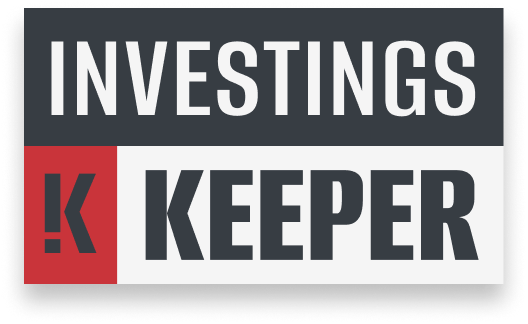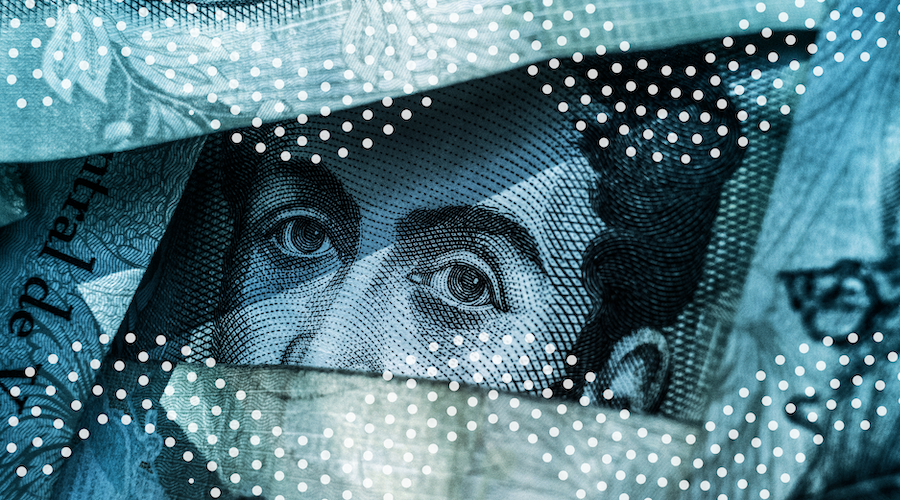
If you’ve spent much time scrolling through personal finance content, then you have probably encountered a lot of content regarding debt and a lot of varying opinions.
Some claim that all debt is bad debt and proudly pose for photos while cutting up a credit card. Others seem to suggest that debt is just another part of life and shouldn’t be taken too seriously.
It’s this conflicting information that inspired today’s community question: What’s the difference between “good” and “bad” debt?
Personally, I fall somewhere in the middle of those financial coaches I mentioned: I appreciate that borrowing money can open the door to many opportunities I would not otherwise have, and leveraging “good” debt can be part of a solid financial plan. I also acknowledge that debt comes with its fair share of downsides. When used irresponsibly, debt can have a long-lasting negative impact on a person’s financial standing.
PSA: Having debt doesn’t make you a bad person
Before I comment on the difference between good debt and bad debt, it’s important that we recognize that, for many people, taking on debt is the only way that they can make certain purchases that are essential for their wellbeing.
While I am going to use the phrases “good debt” and “bad debt,” I want to remind you that your personal debts – or lack thereof – do not make you a good or bad person. We are all operating with different financial backgrounds, education, goals, and experiences, and often our debts are more reflective of our unique circumstances than our personal choices.
So as we navigate this conversation, keep an open mind and know that whether you carry good debt, bad debt, or no debt at all, what is most important is that you have the information you need to make well-informed decisions about your personal finances and maintain a healthy and intentional relationship with your money.
Alright, now let’s get into it!
What is “good debt”?
“Good debt” is debt that helps you earn more income, increase your net worth, increase your credit score, and/or improve your life in a significant way. This kind of debt often includes:
Investing in a home or other real estate
Carrying a mortgage from buying your home or investing in other real estate is generally considered to be a positive form of debt. Not only do you get to enjoy the peace that comes with owning a home of your own, but you also benefit from a variety of potential tax breaks that are exclusive to home owners. It’s possible that when you choose to sell, you will do so at a profit as these assets typically increase in value over time.
If you invest in other forms of real estate, it’s possible that you will be able to make a profit on those investments through rental properties or retail spaces.
Pursuing higher education
Going into debt in pursuit of a higher education is often considered “good debt” as, in general, your earning potential is likely to increase with your advanced education. Workers with a higher education are more likely to secure higher-paying jobs with various perks and benefits thanks to the relevant education and networking opportunities provided by their college or university.
Starting your own business
Many people are attracted to the idea of opening their own business because of the promise of being their own boss and working on their own terms. But most new business owners have to take on some debt in order to get their business off the ground.
This is often regarded as “good debt” as it is an investment in your financial future and earning potential.
What is “bad debt?”
“Bad debt,” on the other hand, is debt that is taken on in order to purchase a depreciating asset – aka an investment that won’t increase in value or help you make more income. This kind of debt often includes:
Cars
In general, cars are considered depreciating assets as they typically decrease in value very quickly. Additionally, you may be subject to high interest rates and loans that drag on for years.
Consumer goods
From designer clothes to fancy furniture to fine art – generally if you are going into debt to purchase these kinds of consumer goods, this would be considered “bad debt” because of a high interest rate. These purchases rarely increase your net worth and earning potential.
The reality of “good debt” and “bad debt”
Now that we have unpacked the common types of debt, I have to admit that I have a bit of a bone to pick with all this “good and bad” verbiage, and here’s why.
When using phrases like “good debt” and “bad debt”, we are making the conversation about debt extremely black and white, when it rarely is the case. Financial choices will always come with both advantages and disadvantages, so what truly determines what is “good debt” and “bad debt” is the way a borrower handles it.
While a mortgage is generally considered “good debt,” history has shown that a mortgage can definitely be “bad debt” if it comes with a monthly payment that the borrower cannot afford (does the 2008 housing crisis ring any bells?). Along the same vein, charging a coffee run and an airline ticket to your credit card can certainly have some “good debt” benefits when the card is promptly paid off in full.
In short, while these labels of “good debt” and “bad debt” can be helpful to some, I believe that they are oversimplified terms, and that at the end of the day, what can be considered “good debt” or “bad debt” really comes down to each borrower’s personal ability to utilize debt responsibly.
How to use debt responsibly
As an avid collector of credit card points, I know firsthand just how beneficial debt can be when used responsibly. Responsible borrowing can allow you to explore exciting opportunities like higher education and home ownership, as well as an increased credit score through consumer spending.
But irresponsible borrowing can result in late payments, high interest rates, a damaged credit score, defaulting on loans, and more – all of which can have a long-lasting negative impact on your financial position.
Here are my five tips for using debt responsibly.
1. Consider taking on debt as an investment in your future.
Ask yourself if the amount of debt that you are taking on will eventually result in a significant improvement in your life or opportunities. From home ownership to higher education, make sure to get a thorough understanding of exactly how much you will be borrowing and how much your investment will appreciate in value over the years to determine if this is a worthwhile investment.
2. Have a thorough understanding of your interest rates, fees, and repayment terms before you agree to the debt.
I’ve heard it a thousand times: “I wish I knew what I was signing up for before I agreed to this loan.”
From student loan debt to car payments, this is an extremely common pain point, as lack of knowledge about your personal debt can result in payments that were higher than anticipated, sky-high interest rates, and repayment terms that make it almost impossible to maintain a healthy borrowing practice.
3. If you choose to use a credit card, consider paying off the balance in full every single month.
This will not only keep you from racking up hefty interest fees, but it will also establish a healthy borrowing history that can increase your credit score and help improve your chances of getting approved for other loans down the line.
4. Make your payments on time.
Late payments can result in late fees and a damaged credit score, which in turn can make you look like a risky borrower to lenders. Set up autopay on your loan payments and credit cards so you never have to worry about missing a payment.
5. Don’t borrow more than you can afford.
While most of us take out loans with the best of intentions, it’s easy to get carried away once we have been approved for a line of credit.
From financing a luxury vehicle to excessive credit card charges to using student loans for anything other than school-related expenses, this is a recipe to rack up a debt balance that is difficult – or even impossible – to pay off with your current income.
Next steps
While the conversation around “good debt” and “bad debt” may be complex, one thing is totally clear: Personal Capital is the comprehensive financial tool that will help you along every step of your financial journey.
Whether you need help figuring out how debt factors into your net worth or finding ways to reduce your high-interest debt, I’d recommend Personal Capital’s free financial tools.
I check Personal Capital daily for tracking my net worth and my progress towards goals like retirement, debt payoff, and (yes!) saving that first $100k.
Get Started with Personal Capital’s Free Financial Tools
Personal Capital compensates Tori Dunlap of Her First $100k (“Author”) for providing the content contained in this article. Compensation not to exceed $500. Author is not a client of Personal Capital Advisors Corporation. Additionally, in a separate referral arrangement between Author and Personal Capital Corporation (“PCC”), Author is paid $70 and $150 for each person who uses Author’s webpage (www.HerFirst100k.com) to register with Personal Capital and links at least $100,000 in investable assets to Personal Capital’s Free Financial Dashboard. As a result of these arrangements, Author may financially benefit from referring potential clients to Personal Capital and/or be incentivized to present blog content that is favorable to PCC. No fees or other amounts will be charged to investors by Author or Personal Capital as a result of the Referral Arrangement. Investors that are referred to PCC and subsequently subscribe for investment advisory services provided by PCC’s affiliated adviser, Personal Capital Advisors Corporation (“PCAC”) will not pay increased management fees or other similar compensation to Author, PCC or PCAC as a result of this arrangement. The content contained in this blog post is intended for general informational purposes only and is not meant to constitute legal, tax, accounting or investment advice. You should consult a qualified legal or tax professional regarding your specific situation. Keep in mind that investing involves risk. The value of your investment will fluctuate over time and you may gain or lose money.



